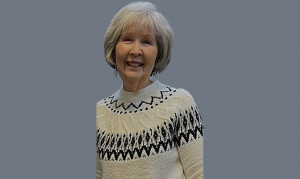There’s nothing glamorous about being a farmer, nothing charming, little endearing and certainly few things easy about it. It is either a calling or a curse, depending on how one looks at it. Some are born into it, and some just can’t find a way to escape it, for it’s all they’ve ever known.
These are the folks who toil in the hot sun, battle the rain storms and shiver through the freezing cold because work on the farm doesn’t wait only for weather perfect days. It is perhaps most similar in demands to that of a labor and delivery doctor with one exception — that doctor will be well paid for his services while the poor farmer will make, at best, some kind of profit and, at worst, will lose all he has despite how hard he has labored or how often he has risen before dawn and faced another uncertain day.
In the 1930s, when the South raised up demigods as politicians, the most notable being Huey Long in Louisiana and Eugene Talmadge in Georgia, they worked hard to get the farmers on their sides. Both had farming childhoods and were well familiar with the rigors of fighting the elements to bring in a few dollars.
“The poor dirt farmer ain’t got but three friends,” Talmadge would declare at every political stop throughout his career, “the good Lord, the Sears and Roebuck catalog and ol’ Gene.”
Huey Long, the son of a poor farmer, never forgot from where he came, often traveling the back roads of Louisiana to shake the hand of one more farmer. And so they responded. Everyone likes to be appreciated so the farmers stood by Long and put him in every office he wanted until the day an assassin shot him down.
To this day, you can visit Long’s grave on the front lawn of the state capitol in Baton Rouge and see flowers and tributes paid to him regularly. His legacy is not forgotten by the generations that have followed the ones he helped. Like him or not, debate if you like whether he was honest or shady, Long had strong respect for those who worked the dirt.
My brother-in-law, Rodney, was born to be a farmer. It is his calling in the same way that a man feels led to lay down the ways of the world, pick up his Bible and follow the Lord. It has always had its challenges, but the last decade has showered down new ones. After two decades of raising chickens, he gave it up — my sister, the bookkeeper and frugal money manager, insisted — because it got to the point where the chickens made more money than he did.
And all the chickens were doing were lounging, eating and clucking. Rodney was labored down with the chicken houses. Every night before he went to bed, he had to pull himself up from his easy chair after a hard day’s work, wipe the fatigue from his eyes and say, “I gotta go check on the chickens.” It was a demanding job.
Now, he devotes his time to raising cattle and that, too, has its aggravations. It is the land, though, that has turned so furiously on him and the other farmers. Kudzu, always an enemy, still tangles, and now thistle, that horrible thorny bush, is almost undefeatable. It costs a small ransom to groom the land so that cows can graze and hay can be raised.
Farming knows no boundaries. Cows are born on the rainiest days and get out, usually scattering into the road, in the darkest of nights, water lines burst on the coldest days and tractors break down in the field under the most scorching sun.
Yet, across this great country, farmers like Rodney still carry on so that our lives are sustained through the bounty they deliver.
Thank one of ‘em today, won’t you?
[Ronda Rich is the best-selling author of “There’s A Better Day A-Comin’.” Visit www.rondarich.com to sign up for her weekly newsletter.]












Leave a Comment
You must be logged in to post a comment.